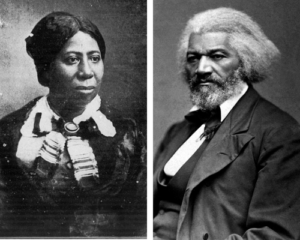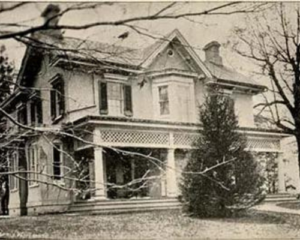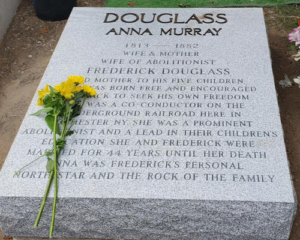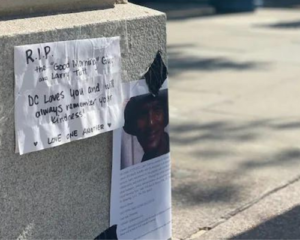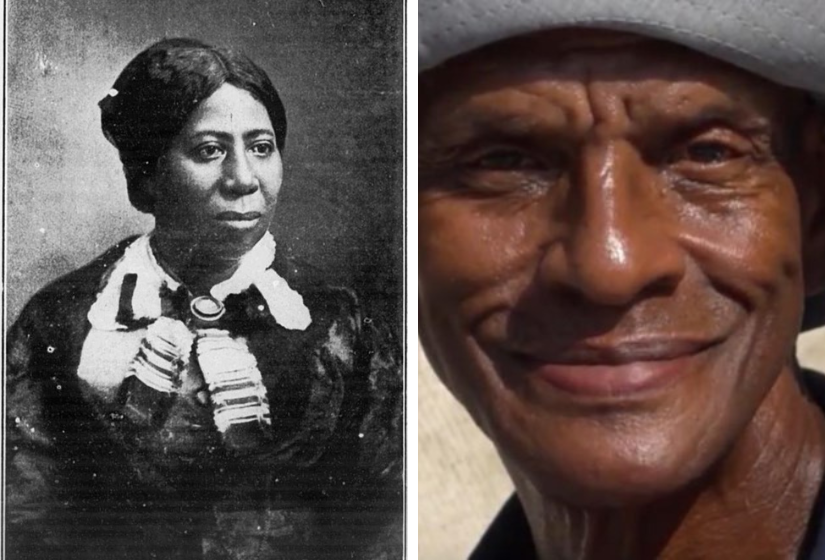
Two experiences recently got me thinking about the meaning of the phrase “a life well-lived.”
The first was attending the Washington, D.C. premiere of the new musical about the life of Frederick Douglass, American Prophet: Frederick Douglass In His Own Words. This is a stunning, inspiring, evening of theater and music. Using the words of Douglass taken from his autobiographies and other writing, combined with an original score of memorable songs by Marcus Hummon and directed by Charles Randolph-Wright director of Arena’s Born for This: The BeBe Winans Story and Broadway’s Motown the Musical, the musical is satisfying and memorable. One of the seminal ways that the musical enlarges and corrects the conventional wisdom and narrative about Douglass is by giving his wife Anna Murray Douglass recognition, honor, and her due!
This is the traditional biography of Anna:
Anna Murray Douglass is best known as the first wife of black abolitionist Frederick Douglass. Her life illustrates the challenges facing women who were married to famous men. Born as a free black in rural Maryland, her parents, Mary and Bambarra Murray were manumitted shortly before her birth. She grew up in Baltimore, where she met a ship caulker six years her junior, Frederick Washington Bailey. Although it is unclear how they met, Murray facilitated his second escape attempt by providing money for a train ticket and a sailor’s disguise. She followed him to New York City, where they were married by the prominent black minister, Rev. J.W.C. Pennington. They adopted the surname Douglass when they moved to a Quaker community in New Bedford, Massachusetts.
While Frederick began his climb as an abolitionist orator, Anna cared for their children, born between 1839 and 1849: Rosetta, Lewis, Frederick, Charles, and Annie. In 1847, they moved to Rochester, New York, where Frederick began publishing his newspaper, the North Star. The gulf between Anna and Frederick widened over the years; she could barely read and write and was rarely a part of his activist life and growing circle of prominent white and black abolitionist colleagues. After the death of their youngest child, Annie, in 1860, Anna’s health steadily deteriorated. She died on August 4, 1882, at their home, Cedar Hill, across from Washington, D.C. She was carried back to Rochester, New York, where she was buried in Mount Hope Cemetery.
My husband is battling with the minions of oppression, why not I endure hardship that my race may be free? ~ Anna Murray Douglass
Notice how Anna’s inability to read and write is described with so much censure and denigration but illiteracy is not a synonym for a lack of intelligence. This was a woman who was a successful businesswoman when she met Frederick Bailey, who helped him morally, financially and engineered his successful escape to freedom. This was a woman who created a home for Douglass where he was husband, father, and fully respected man. This was a woman who in her daily life lived the ideal of abolition and advised her husband about politics and his writing. She raised protected and educated her children, often for long stretches alone. While he was lauded internationally and was one of, if not the most photographed man of the 19th century, Douglass often faced violence as well as physical and emotional harassment when he spoke against slavery. Oration and abolitionism were his life and the career that fed his family. Who would he have been if he had lacked a supportive loving Black family that could recharge and affirm him in a world in which he said and wrote repeatedly he was viewed not as a citizen or as a man? The work that women perform in the domestic sphere was underrated and taken for granted in the 19th century despite how crucial and invaluable it was. And at a time when the average life expectancy of a White woman in America was forty, Anna Murray Douglass, a Black woman who experienced systemic racism and sexism lived to the age of 69.
The Douglass family worked closely with the creators of the musical to ensure that their ancestor and foremother was recognized as the partner and soul mate that she was to Douglass. She of course was overshadowed by the often highly educated white female abolitionists who made up a significant portion of the abolitionist movement and who worked closely with Douglass. In his brilliant and masterful biography of Douglass, Frederick Douglass: Prophet of Freedom, historian David Blight does an exceptional job of weaving Anna’s importance and significance into Douglass’ story. Anna Murray Douglass made Frederick Douglass possible. Blight talked with Black women historians and writers who helped him to understand and develop Anna as a person in her own right in this text written by one of the nation’s preeminent White historians. Anna Murray Douglas left no letters, no written description of her inner life. But the Douglass’ life and the lives of their progeny are ample testimony to her intelligence, compassion, creativity, and dedication to freedom.
The second experience that had me thinking about the meaning of a “well-lived life” was reading a column by Washington Post columnist Petula Dvorak:
Starting in 2009 Larry Tutt got up at 5 am and rode the metro to Washington D.C.’s K Street, a part of the city known as home to scores of law offices and lobbyists. A stretch of blocks in downtown DC where people have power, work to get power for themselves, or are hired to get it for others. This is where Tutt set up a collapsible chair and called out to passersby “Have a safe trip” “Good morning” “Have a good day.” Over the more than 12 years that Larry Tutt sat in that chair and offered cheer, welcome, and yes love to strangers, he became a K Street fixture to many of those rushing by him on their way to work a friend. He died recently of liver cancer. I call that a life well-lived. Read his story and it will remind you despite the relentless assault of 24-hour news, all is not lost. We as a people and a nation, as a world are not lost. This was a man who had found his mission and who performed it faithfully whether he was ignored or embraced. Sort of like Frederick and Anna!
Watch the videos below for more on Anna Murray Douglass and Frederick Douglass:
Let the Storm Come
Released September 15 in honor of Frederick and Anna Douglass’ wedding anniversary.
Dedication of Memorials to the Wife and Daughter of Frederick Douglass
Ken Morris
Frederick Douglass’ great-great-great-grandson and founder of Frederick Douglass Family Initiatives.
Cornelius Smith Jr.
Interview with actor Cornelius Smith Jr. who plays Frederick Douglass in American Prophet.
Charles Randolph-Wright & Marcus Hummon
Interview with Charles Randolph-Wright, American Prophet’s Co-writer/Director, and Marcus Hummon, American Prophet’s Co-writer/Composer.
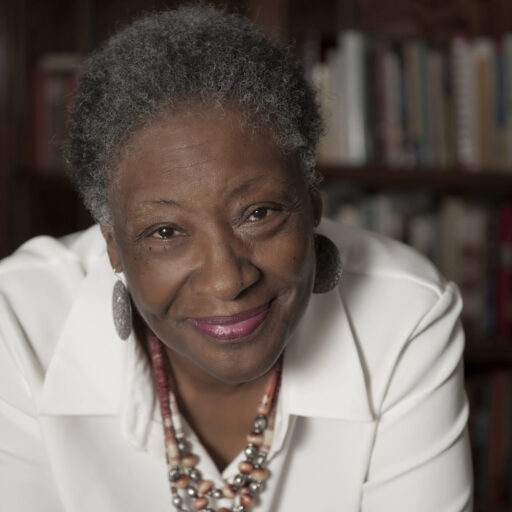
Marita Golden is the author of over 20 works of fiction and nonfiction. She is Co-founder and President Emerita of the Zora Neale Hurston/ Richard Wright Foundation. As a teacher of writing, she has served as a member of the faculties of the MFA Graduate Creative Writing Programs at George Mason University and Virginia Commonwealth University and served as a Distinguished Visiting Writer in the MA Creative Writing Program at John Hopkins University, and at the University of the District of Columbia. She has taught writing workshops nationally and internationally to a variety of constituencies and is a writing coach, workshop presenter, and literary consultant.


